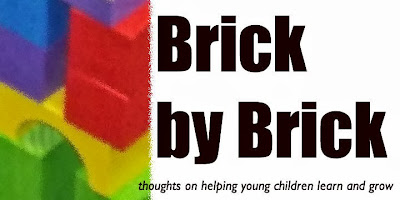We adults spread butter on bread without even thinking about it. Kids must learn how to do that.
Recently we made grilled cheese sandwiches in our class. Our kids practiced spreading butter. They had to manipulate the knife (and make their hands do those motions). They had to control where the butter went...and how it stayed (or didn't) on the knife. They had to evaluate if they had spread enough, covered enough of the bread. They had to look and see if there was a lot of butter in some places or only a little or none in other places.
Whew! That's a lot of thinking and evaluating and doing. (But with a tasty result!)
Well, we adults seem to remember that kids need to learn and practice and develop skills when we are talking about physical tasks. But sometimes when we get to mental tasks, we forget.
We have mastered addition and subtraction. At least we understand what it means to add (or subtract) quantities together. We understand that if you have 2 apples and then get 3 more, you have 5. We don't even need to think about it. We just know.
Young kids must learn what it means to put two groups of materials together. Heck, they even need to learn what quantities mean - how many 3 or 7 or 10 are. (Not those symbols, the amounts!) They must learn that 3 always is the same amount. They must begin to understand that counting gives the amount of items; that when counting, you count each item once and only once; that adding more doesn't mean that you have to count all of the items again but you can just count on.
Whew! That's a lot of thinking and evaluating and doing.
We adults know all of that and can immediately grasp what's happening and move on. That's because we have had lots of practice doing it and thinking about it. We have lots of experience.
Lately I've been seeing lots of parents and other adults lament or poke fun at some on the ways math is taught. "Why do they need to do that? What don't they just show them that 3+2=5?" I also wondered at some of the ways we were doing things when I was teaching second grade. Until I saw one of those "weird" things connect with a kid in my class. He got it because we did things in several different ways.
Teachers want kids to understand WHY they are doing something, not just HOW to do it. That helps them connect and evaluate and extrapolate to new applications.
Kids don't know what adults know. They don't have the experiences and practice that adults have. That's where play and investigation and experimentation and different ways of approaching problems comes in.
Let's give them a chance to develop some understanding.



